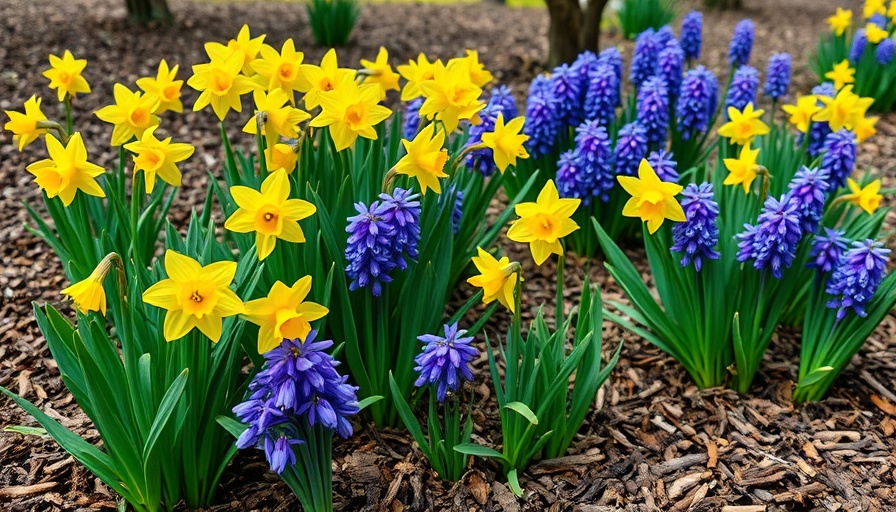
Unlock Vital Care for Your Garden Amid Hosepipe Bans
As hosepipe bans sweep across the UK, especially in metropolitan areas like London, young homeowners find themselves grappling with how to protect their gardens under increasingly strict water usage restrictions. Southern Water has recently implemented a ban, leaving many anxious about their plant's survival. Fortunately, garden experts are emphasizing one simple yet effective task that can save your plants with minimal effort: mulching.
Why Isn’t Everyone Talking About Mulching?
Mulching is far more than just an aesthetic choice; it’s a lifeline for plants during dry spells. By laying down organic materials—like straw, bark chippings, or even leaves—you create a vital barrier that locks in moisture and maintains healthy soil temperatures. According to Tom Clamp, a garden care specialist, “Mulching is crucial for maintaining a healthy garden, especially under these drought conditions.”
A Deeper Dive into Mulching Benefits
Climate impacts on gardening are an inevitable concern as temperatures rise and rainfall diminishes. Mulch not only conserves moisture but also suppresses weeds that compete with your plants for water and nutrients. Nigel Lawton from Dobbies plant shop explains, “Mulch acts as a barrier, preventing soil from overheating and decreasing water evaporation. In turn, this helps your garden thrive.” Think of mulch as your plants’ best defense against both high heat and water loss.
Diverse Mulching Materials: What Works Best?
Choosing the right mulch can significantly affect its effectiveness. Organic choices like wood chips, bark, or even compost enrich nutrients in the soil and create an inviting environment for roots. For container plants, consider durable materials like gravel or chipped bark which can be easily sourced for reasonable prices at local stores—you can find 20kg of horticultural grit for just £6 at B&Q, for instance. The “right” mulch depends on your garden style and plant types, and it’s crucial to select materials that will nourish rather than hinder your plants.
Transform Your Gardening Approach
So why should young homeowners in London care about mulching? The bustling city life often leaves little time for extensive gardening tasks, but mulching is a relatively quick act that pays off exponentially. Taking just an afternoon to apply mulch can save time spent watering in the heat, while also contributing to a more sustainable gardening practice.
Practical Tips for Effective Mulching
When mulching your garden, keep these recommendations in mind:
- Layer it Right: Aim for a thickness of 2-4 inches for maximum moisture retention.
- Keep It Clean: Ensure your mulch is free from weeds or pathogens to prevent introducing pests.
- Refresh Regularly: Organic mulch breaks down over time, so replenish it every season to maintain its benefits.
Looking Ahead to a Sustainable Future
As climate change continues to bathe us in extremes, developing a proactive approach to gardening can make a difference. By incorporating sustainable practices like mulching, young homeowners not only protect their living spaces but actively contribute to the eco-friendly lifestyle that defines London today. The act of gardening transforms not just our homes but our communities—becoming a shared pursuit that connects us to nature and each other.
By embracing these techniques and fostering a green thumb, we can ensure healthier communities and gardens alike. Now’s the time to cultivate habits that will nourish our plants and preserve our environment. If you haven’t mulched your garden yet, there’s no better moment than now. You’ll see the positive impact almost immediately.
 Add Row
Add Row  Add
Add 




Write A Comment